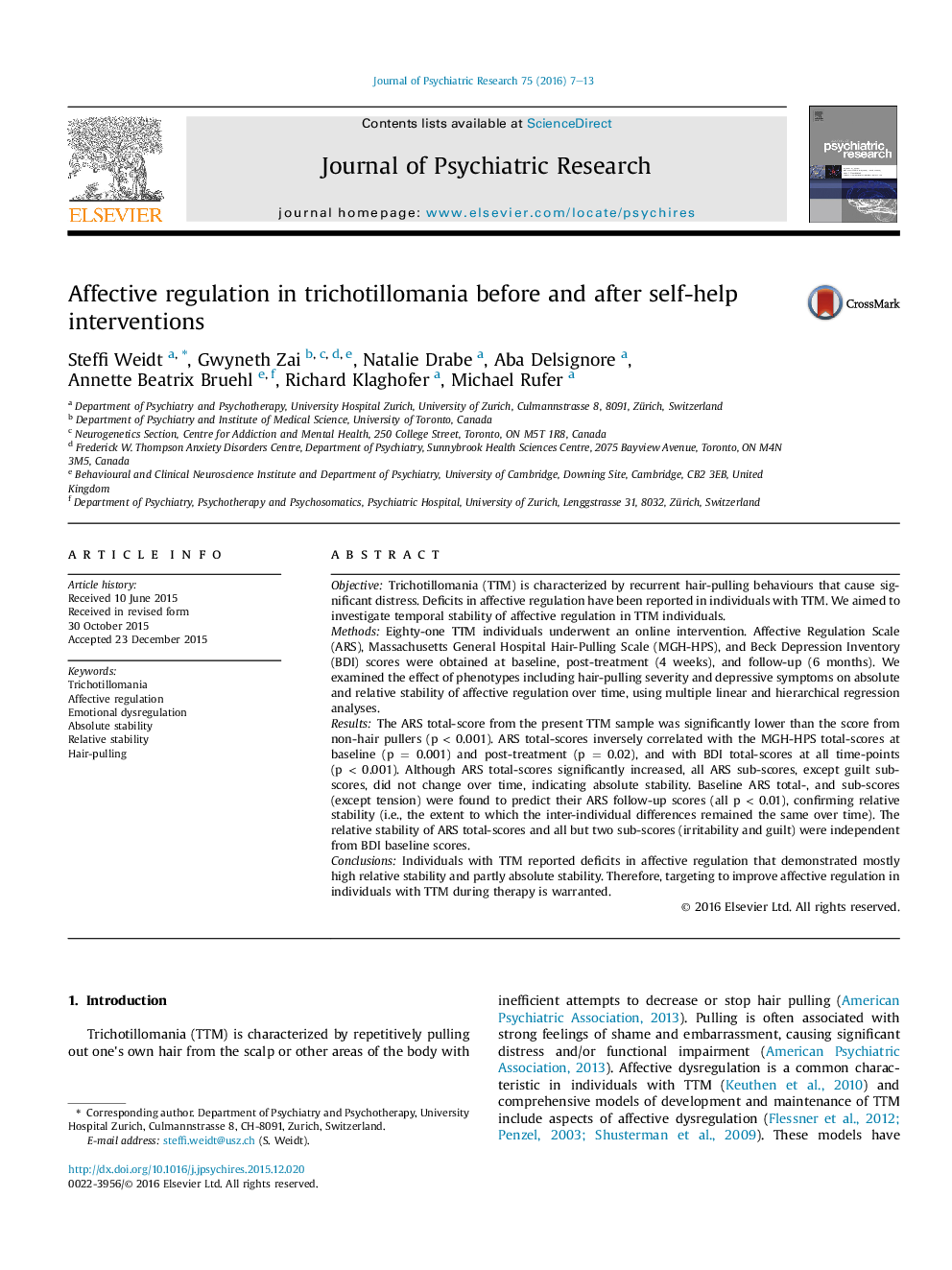| کد مقاله | کد نشریه | سال انتشار | مقاله انگلیسی | نسخه تمام متن |
|---|---|---|---|---|
| 327536 | 542925 | 2016 | 7 صفحه PDF | دانلود رایگان |
• First to examine temporal stability of affective dysregulation in TTM.
• Most ARS sub-scores did not change over time, indicating absolute stability.
• Baseline ARS scores predicted ARS follow-up scores, implicating relative stability.
• Affective dysregulation in TTM has relative stability and partial absolute stability.
• Targeting to improve affective regulation in TTM during therapy is warranted.
ObjectiveTrichotillomania (TTM) is characterized by recurrent hair-pulling behaviours that cause significant distress. Deficits in affective regulation have been reported in individuals with TTM. We aimed to investigate temporal stability of affective regulation in TTM individuals.MethodsEighty-one TTM individuals underwent an online intervention. Affective Regulation Scale (ARS), Massachusetts General Hospital Hair-Pulling Scale (MGH-HPS), and Beck Depression Inventory (BDI) scores were obtained at baseline, post-treatment (4 weeks), and follow-up (6 months). We examined the effect of phenotypes including hair-pulling severity and depressive symptoms on absolute and relative stability of affective regulation over time, using multiple linear and hierarchical regression analyses.ResultsThe ARS total-score from the present TTM sample was significantly lower than the score from non-hair pullers (p < 0.001). ARS total-scores inversely correlated with the MGH-HPS total-scores at baseline (p = 0.001) and post-treatment (p = 0.02), and with BDI total-scores at all time-points (p < 0.001). Although ARS total-scores significantly increased, all ARS sub-scores, except guilt sub-scores, did not change over time, indicating absolute stability. Baseline ARS total-, and sub-scores (except tension) were found to predict their ARS follow-up scores (all p < 0.01), confirming relative stability (i.e., the extent to which the inter-individual differences remained the same over time). The relative stability of ARS total-scores and all but two sub-scores (irritability and guilt) were independent from BDI baseline scores.ConclusionsIndividuals with TTM reported deficits in affective regulation that demonstrated mostly high relative stability and partly absolute stability. Therefore, targeting to improve affective regulation in individuals with TTM during therapy is warranted.
Journal: Journal of Psychiatric Research - Volume 75, April 2016, Pages 7–13
